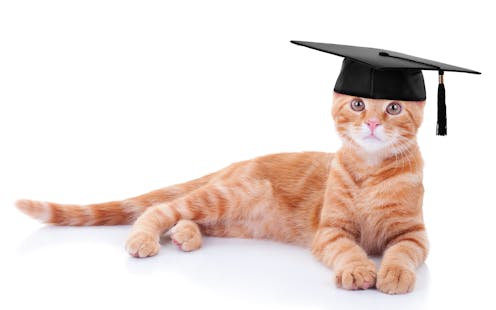Love for cats lures students into this course, which uses feline research to teach science
- Written by Jonathan Losos, William H. Danforth Distinguished University Professor, Arts & Sciences at Washington University in St. Louis

Why is this course relevant now?
Society needs more biodiversity scientists to understand our rapidly changing world. Cats pose scientific questions of broad interest, and they may serve as a gateway introduction to the world of biological research.
What’s a critical lesson from the course?
Important research on the natural world does not require traveling to remote corners of the world. Research on common animals in local surroundings – even household pets – can make important advances in basic and applied knowledge.
What materials does the course feature?
In addition to reading research papers, we took field trips that were both eye-opening and fun. We went out at the crack of dawn to join a homeless-cat advocate feeding unowned felines in a rundown part of town. We also learned about cats in ancient times from an Egyptologist, traveled to a cat show to marvel at the diversity of cat breeds, observed wild felines at the Saint Louis Zoo and examined cats in art at university museums.
What will the course prepare students to do?
Cat research is the vehicle for students to see the applicability of scientific ideas to animals they know and care for greatly. The course not only requires students to synthesize knowledge from many different fields, but also gets them to think about real-world contemporary debates, such as what to do about outdoor cats and the ethics of breeding.
References
- ^ Uncommon Courses (theconversation.com)
- ^ I’m an evolutionary biologist (scholar.google.com)
- ^ Cat Sense (www.hachettebookgroup.com)
- ^ The Secret Life of the Cat (www.bbc.com)
- ^ ailurologists (en.wiktionary.org)
- ^ The Cat’s Meow: How Cats Evolved from the Savanna to Your Sofa (www.penguinrandomhouse.com)
- ^ Sabina Ja/500px via Getty Images (www.gettyimages.com)
Authors: Jonathan Losos, William H. Danforth Distinguished University Professor, Arts & Sciences at Washington University in St. Louis

